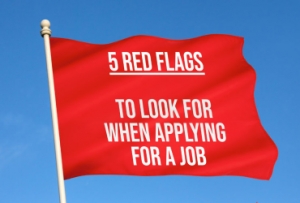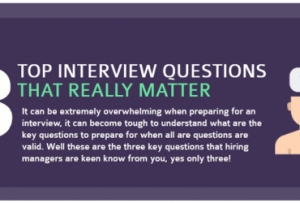It is always daunting when preparing for an interview, especially when all questions asked are considered deal breakers for securing that role. So how do we distinguish which questions are actually important and worth noting?
Find out what these 3 key questions are in the below article giving in-depth insight to why.
Can you do the job?
1. It seems straight forward but its food for thought, another way this might be phrased is, “Can you tell me why you know you can do the job?” To answer this question, its best to understand and show your expertise, present examples of how you applied the desired skills with outstanding results. When researching, CEO of Bagg Group Geoff Bagg outlines the S-I-R strategy (also known as S-A-R, for Situation, Action-taken, Result)
Situation: In a sentence or two, describe the situation.
Initiative: Briefly show how you dealt with the situation.
Results: Sum up the benefits of your initiative.
This not only helps you to make a list of all your applicable skills, but how you have benefited from making use of them.
Have these skills memorised and have your examples to present when asked.
Will you fit into the team?
An important question, you may have the skill set, but do you have the team player attitude? Every company has its own unique culture which is why it fits into two categories
1) Ways of behaving
2) Ways of working
No one likes to be the odd one out, It is important to make sure you fit in and don’t feel completely out of your depth. Hopefully you will have done some research prior to applying for the job. At times, it can be somewhat difficult to access detailed knowledge about the company culture, in this case you can discuss your assumptions and why you feel you fit in.
One useful way to get more insight to companies is Glassdoor. A gateway that provides a growing amount of data and information about what it is like to work for different companies. You want to map out the culture of the company you are planning to join and compare this to your personality traits and behaviours.
Will you love this job?
Final question, this is often phrased in a few different ways: What would make you love this job? or What is it about this job that you would really love?
This is where you need to present to show that you are keen. Candidates should do some prior research to understand as best as possible the companies culture.
The interviewee should relate to the qualities of the company. Example, if the company is a visionary (thinking outside the box) speak of the personal satisfaction that comes from being encouraged to brainstorm ideas and how to be different from the rest.
On the flip side, if the company is known more for being a corporate citizen, the candidate could mention their own interest in volunteerism and being a team player with projects.
Apart from raising your confidence in yourself with going into interviews and how to prepare for them, doing your research indicates that you care enough to put in the extra effort.










